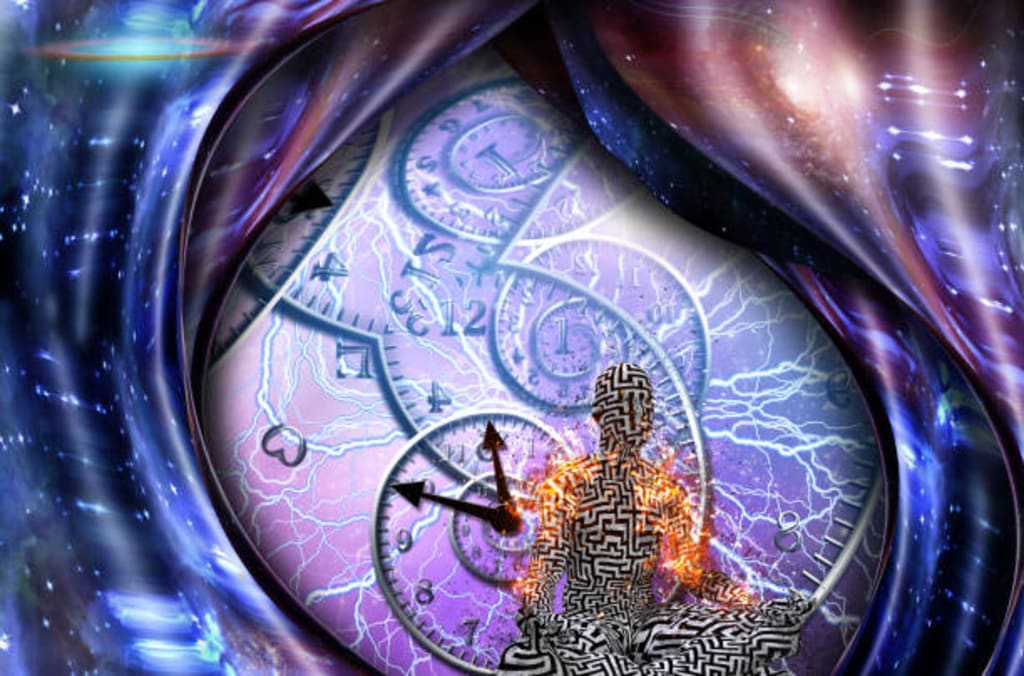
Time perception is a fascinating and complex subject that has been studied by psychologists for centuries. It refers to the way we experience and perceives the passage of time, which can vary depending on a range of factors including our emotions, attention, and physical environment.
In this article, we'll explore the key concepts and theories related to time perception, including the different ways in which we experience time and the factors that influence our perceptions.
The Experience of Time
Time is a fundamental aspect of human experience, but our perceptions of it can be highly subjective. For instance, have you ever noticed that time seems to fly by when you're having fun, but drags on when you're bored or anxious?
This phenomenon is known as temporal distortion, and it highlights the fact that our subjective experiences of time can differ significantly from objective measurements. While an hour on the clock is always 60 minutes, the way we experience that hour can be influenced by a range of psychological and environmental factors.
There are several different ways in which we experience time, each of which can be influenced by different factors. Some of the key experiences of time include:
Duration: This refers to our perception of how long a particular event or activity lasts. For example, if you're waiting for a bus that's running late, time may seem to drag on endlessly. Conversely, if you're enjoying a conversation with a friend, time may seem to fly by.
Temporal order: This refers to our ability to sequence events in time, such as remembering the order in which things happened. Our ability to order events in time is critical for our sense of continuity and coherence in everyday life.
Rhythm: This refers to our perception of the regularity and predictability of events. For example, if you're listening to a song with a strong beat, you may find yourself tapping your foot or nodding your head in time with the rhythm.
Passage: This refers to our sense of the passing of time. For example, when we experience a long, uneventful day, time may seem to drag on. In contrast, when we're busy and engaged in activities we enjoy, time may seem to fly by.
Factors Influencing Time Perception
Our perceptions of time can be influenced by a range of factors, including both internal psychological factors and external environmental factors. Some of the key factors that influence time perception include:
Emotions: Our emotional state can have a significant impact on our perceptions of time. For example, when we're anxious or bored, time may seem to drag on, while when we're excited or engaged, time may seem to fly by.
Attention: Our ability to focus our attention on a particular task or activity can also influence our perceptions of time. When we're absorbed in a task, time may seem to pass quickly, while when we're distracted or bored, time may seem to drag on.
Physical environment: Our physical environment can also influence our perceptions of time. For example, if we're in a noisy, chaotic environment, time may seem to pass more quickly due to the high level of sensory stimulation. Conversely, in a calm, quiet environment, time may seem to slow down.
Biological factors: Our individual biology can also influence our perceptions of time. For example, some studies have found that younger people tend to experience time as passing more slowly than older people, while others have found that our circadian rhythms can influence our perceptions of time.
Theories of Time Perception
There are several different theories related to time perception, each of which seeks to explain the mechanisms behind our subjective experiences of time. Some of the key theories include:
Attentional Gate Theory: This theory suggests that our perceptions of time are influenced by the way we allocate our attention. According to this theory, when we're engaged in a task, our attentional gate is open, allowing us to process a high volume of information and making time seem to pass more quickly. However, when we're bored or disengaged, our attentional gate closes, and time seems to drag on.
Internal Clock Theory: This theory suggests that we have an internal clock that regulates our perception of time. According to this theory, our internal clock ticks at a regular rate, but our perception of time is influenced by the amount of information we process during a given period. When we're engaged in a lot of activity, we process a lot of information, making time seem to pass more quickly.
Expectancy Theory: This theory suggests that our expectations about how long something will take influence our perceptions of time. For example, if we expect a task to take a long time, time may seem to pass more slowly, while if we expect it to be quick, time may seem to pass more quickly.
Attentional Blink Theory: This theory suggests that we experience "blinks" in our attention that can affect our perceptions of time. According to this theory, when we're presented with two stimuli in quick succession, our attentional resources are depleted, causing us to experience a temporary "blink" in our perception of time.
Implications for Everyday Life
Our perceptions of time can have significant implications for our everyday lives, from our productivity at work to our experiences of leisure time. Understanding the factors that influence our perceptions of time can help us to make the most of our time and enjoy our lives more fully.
For example, if we know that our attentional gate is more likely to be open when we're engaged in tasks that we find meaningful or challenging, we can seek out opportunities to engage in those kinds of activities. Similarly, if we know that our perceptions of time are influenced by our emotions, we can take steps to manage our emotional states to ensure that we make the most of our time.
Conclusion
Time perception is a fascinating and complex subject that has been studied by psychologists for centuries. Our subjective experiences of time can vary depending on a range of factors, including our emotions, attention, and physical environment. Understanding the mechanisms behind our perceptions of time can help us to make the most of our time and enjoy our lives more fully.
About the Creator
Gokila
She is an astrophile, introvert,
loves to read books all day long,
addicts in healthy lifestyle
and having curiosity to know about new things.
Life Is As Beautiful As You Make It. Contentment Is The Key To Happiness. Peace Be Upon The Saviour.






Comments
There are no comments for this story
Be the first to respond and start the conversation.